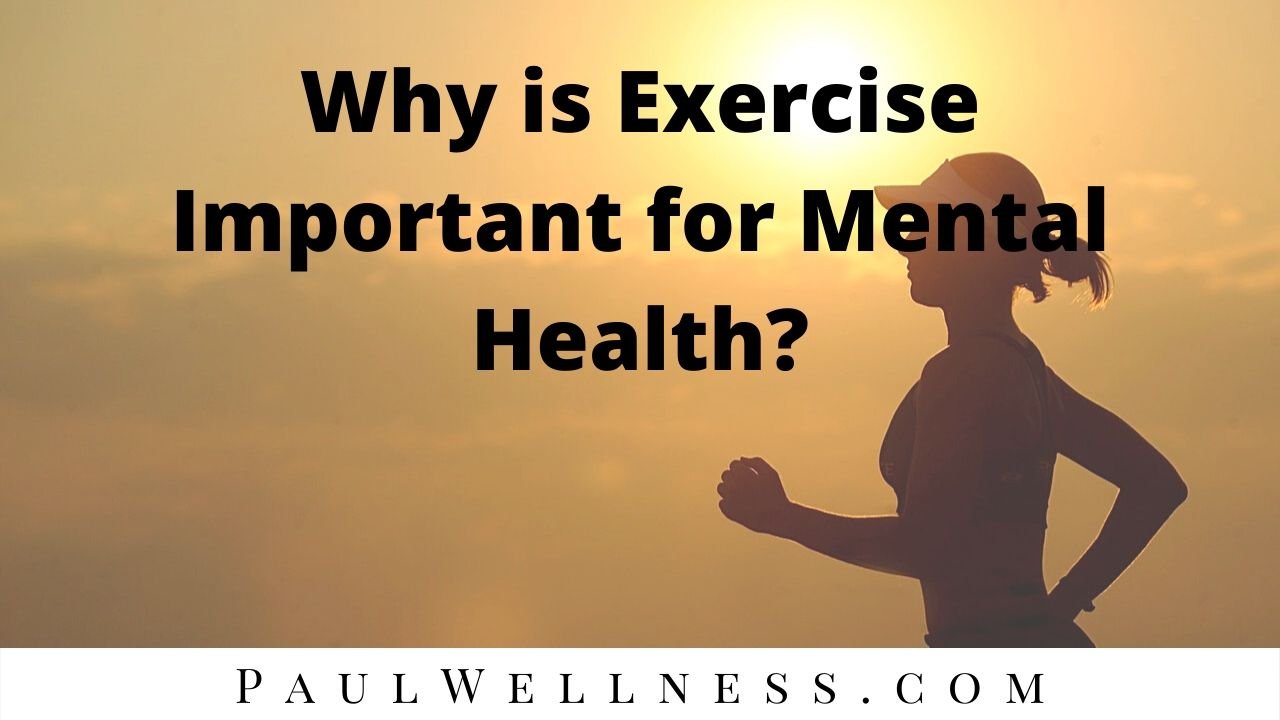Everyone knows that exercise is good for you. You hear it all the time. You’ll be happier if you just workout. Is it really true? Can some time in the gym (or home, outside, or anywhere else) really boost your mental health? While the physical benefits are visible in terms of less fat and more muscle, it’s harder to observe internal changes to mood and mental health. However, there is a growing body of research showing that exercise is objectively great for your mood.
Let’s dive into this topic a little deeper and see why. We’ll also talk about whether cardio or weight training is better for mental health.
Acknowledgements
Much of this information comes from the detailed article Exercise and Mental Health created by Kathleen Mikkelsen, Lily Stojanovska, Momir Polenakovic, Marijan Bosevski, and Vasso Apostolopoulos. Be sure to read the full article for even more information about this interesting topic.
Does Exercise Help Mental Health?
Before getting into why exercise helps and which conditions it’s been shown to help the most, let’s cover the basics. The effect of exercise on mental health has been thoroughly researched and is still going through many research studies. It has been discovered unequivocally that exercise is indeed good for mental health.
While some conditions have been studied more than others (notably anxiety and depression) there is no question that exercise boosts mood and improves mental health. Is it a cure for mental illness? No, but it clinically reduces symptoms and helps one cope with mental illness and stress.
So don’t skip the workout. If you want to feel better, then exercise might be exactly what you need.
Why Does Exercise Help Mental Health?
I said before that exercise definitely helps mental health and it’s still being researched. One of the major reasons why (aside from seeing which conditions it helps more than others) is because no one is quite sure why exercise helps. There are several predominant theories, but we haven’t found the right answer just yet.
The three predominant theories are:
- Psychological (self-efficacy, distraction)
- Physiological (endorphins, thermogenic, mitochondrial)
- Immune System (cytokines, adipocytes, TLR, vagal tone)
Each of the main theories is broken down into smaller theories. I’ll go over the main points of each theory, but feel free to research one in depth to learn even more (the source in the acknowledgements section offers a wealth of information for each point).
Psychological Theories
Starting with the psychological theories, this theory is broken down into how exercise boosts self-mastery/efficacy (I’ll flip-flop between these, but they mean the same thing) and helps provide a healthy distraction.
Self-efficacy roughly means your ability in being able to succeed. One of the hallmarks of depression is hopelessness, or low self-mastery. Those with depression feel they can do very little or accomplish little in life. But what happens when you take up a cardio routine and slowly see yourself running longer and faster? You see yourself succeeding and start believing that you can succeed in other ventures.
It’s important to stick to realistic goals with realistic increases. If you’ve never jogged before, then trying to jog a mile will backfire. However, if you set a modest goal of jogging just for one minute, then you can meet your goal. Then you go for two minutes, three minutes, etc. It’s about setting realistic goals and seeing yourself improving.
Then we have the distraction theory. Now you might be tempted to overlook this because the word “distraction” gets a bad rap. However, let’s look at healthy vs unhealthy distractions. Scrolling on YouTube or Instagram for hours is an unhealthy distraction. It doesn’t help your life and doesn’t improve your health in any significant way. Lifting weights though is a healthy distraction.
So, what exactly do I mean by a psychological distraction? This is anything that gets your mind off stress or mental illness symptoms. It’s hard to ruminate on anxious thoughts when you’re trying to run. Exercise should be just hard enough where you have to focus on the task at hand. This gets your mind off the problem. You can further your healthy distraction by listening to music or watching TV while exercising (a treadmill would be better if you plan on watching your favorite shows or movies).
Physiological Theories
Exercise releases many natural chemicals that can boost your mood and reduce pain (which is common to depression and anxiety). The endorphin hypothesis probably has the most steam of all the physiological theories. Endorphins reduce feelings of pain and give the feeling of “runner’s high” after periods of moderate to intense workouts.
Mitochondrial effectiveness is another theory gaining attention. Mitochondria is principally tasked with supplying energy to the body. What many people don’t realize is that it also plays a huge role in synaptic strength and cellular resistance in the brain. Healthy mitochondrial processes are thought to improve neuroplasticity. This theory postulates that poor neuroplasticity is what leads to increased stress and symptoms of anxiety and depression.
So, what does exercise have to do with mitochondria? Glad you asked! Exercise improves mitochondriogenesis, thus increasing and improving your natural mitochondria. If this theory is true, then it’s been shown that aerobic exercise is best for enhancing mitochondria.
Immune Theories
The immune theories largely focus on inflammation’s role in our health. Many people know that inflammation leads to a variety of physical health issues, but did you know that it’s thought to lead to mental health issues as well? There is evidence showing that the nervous system and immune system are linked and that a poor immune system can lead to increased stress, poor mood and increased anxiety and depression.
According to this theory, it’s thought that a poor immune system can reduce neuroplasticity while increasing inflammation in the body. Evidence has shown that exercise can alleviate depression that manifests in those with physical health conditions with comorbid depression (such as Alzheimer’s and obstructive pulmonary disease).
Exercise effectively reduces inflammation, which could be the reason why it enhances mental health.
Which Mental Health Conditions are Helped Most by Exercise?
This is hard to answer. I can say that research has focused primarily on anxiety and depression largely because these are the two most common mental health conditions. It also helps the precursor to many mental health issues: stress. Evidence also shows that exercise can help with PTSD symptoms and even schizophrenia to a degree (the research focused on the anxiety symptoms present with those who have PTSD and schizophrenia, please keep this in mind).
It would currently be impossible to say that exercise helps all mental health conditions. However, I can say that research shows that it’s great in helping mood, overall mental well-being, alleviates depression and anxiety, and reduces stress.
Is Exercise Harmful to Mental Health?
It actually can be under the right (or rather, wrong) circumstances. There is such a thing as exercise addiction. This occurs when you can’t stop exercising, feel bad when you’re not working out, and you spend as many waking hours as possible in the gym lifting or running. This isn’t something for most people to worry about and usually occurs in elite athletes.
Exercise addiction can lead to excessive anti-inflammatories in the body, which can actually increase the risk of infections. This also results in low mood, negative body image, excessive concerns about weight, and negative self-talk whenever the person is unable to exercise or isn’t hitting their goals in the gym.
Not only that, but trying to wean off exercise creates withdrawal symptoms similar to substance abuse. Some exercise addicts may also develop or worsen bulimia and anorexia in an attempt to further their fitness goals.
However, please understand that the chances of this happening are exceptionally rare for most people. Exercise is healthy and good for everyone. It only becomes problematic if you cannot stop.
Is Cardio or Lifting Better for Mental Health?
Current research doesn’t have a specific answer to this yet. It seems that both aerobic and anaerobic exercise improves mood equally. Except for minor differences here and there, both help with symptoms of depression and anxiety.
Even if we go back to the theories of why mental health is impacted by exercise (self-mastery, distraction, endorphins, immune response, etc), most of them are equally impacted from running, lifting, or both. The only one that seems to favor cardio is the mitochondria theory.
In short, do whichever you prefer. Or do both if you want to improve your muscle mass and lung capacity. We’re focusing on mental health here, but you should also consider how you want to change your body.
Want more muscle? Then lift. Want more endurance? Then run. It’s really that simple.
What about alternative exercises like yoga, tai chi, swimming, and so on? There hasn’t been much research on them yet. The limited research shows that most are effective, but it’s hard to say how they compare to lifting and more intense aerobic exercises. But, at the same time, there’s no research about these alternative exercises being harmful. If you’re called to them and they help, then all the better for your health.
How Long Should I Exercise for Mental Wellness?
The research isn’t quite specific on this yet either. I can’t tell you exactly when the health benefits start, but the research does say that working out 20-40 minutes can produce feelings of wellness for several hours. I would say 20 minutes is a good place to start.
If exercise is completely new to you and 20 minutes is too long, then do 5 or 10 minutes. Whatever you can. Remember, self-mastery is all about hitting realistic goals. You can work your way up.
You should also try to exercise more days than not. You can run or lift every other day and that should be enough to create a wellness response. Once again, if this is too much, then work within your limits and go up from there. This is about lifting yourself up, not putting yourself down.
Final Thoughts
I hope I answered your question about whether exercise is good for mental health and why it helps. Evidence shows it boosts mood, improves wellness, and helps with symptoms and depression and anxiety. While there are still areas to be researched (does it help other mental health concerns, cardio vs lifting, which theory is correct, etc), it’s been proven that exercise is key to mental wellness.
While exercise cannot replace a counselor for those with true depressive or anxiety conditions, it works well in treatment and can reduce symptoms to more comfortable levels. So, if you’re stressed, down, anxious, or have negative self-talk/self-image, then try working exercise into your day. All it takes is 20 minutes to make you feel better for several hours.
Give it a try and let me know how you feel.



